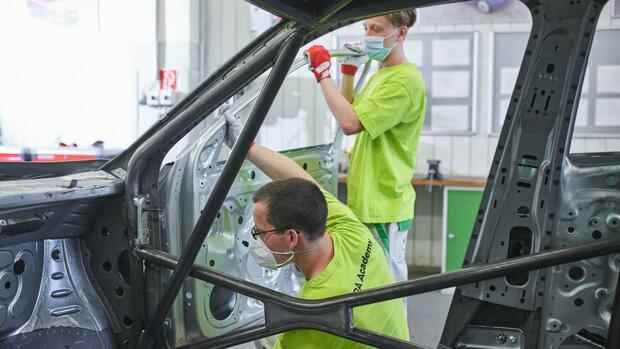The car manufacturers lack the microchips, which is why they cannot build as many vehicles as actually possible, despite strong demand.
(Photo: obs)
Berlin The backlog of orders in German industrial companies is getting longer and longer in view of production being slowed down by material shortages. The number of orders in December grew by 1.5 percent compared to the previous month and is now higher than at any time since the start of the data series in January 2015, the Federal Statistical Office announced on Thursday.
Since June 2020, the companies have consistently received more new orders than they have been able to process. “A major reason for this is likely to be delivery bottlenecks for primary products,” the statisticians explained. For example, car manufacturers lack the coveted microchips, which is why they cannot build as many vehicles as actually possible, despite strong demand.
Compared to February 2020, the month before restrictions due to the corona pandemic began in Germany, the order backlog is now 29.3 percent higher after calendar and seasonal adjustments.
Open orders from Germany increased by 3.0 percent in December, those from abroad by 0.8 percent. The stock of manufacturers of intermediate goods increased by 1.2 percent, among producers of capital goods by 1.5 percent and in the area of consumer goods by as much as 2.4 percent.
Top jobs of the day
Find the best jobs now and
be notified by email.
“The scope of the order backlog has also increased further,” the Federal Office determined. It also reached a new high of 7.7 months in December. The range of 11.0 months is particularly high for manufacturers of capital goods such as machines and vehicles. It indicates how many months the companies would theoretically have to produce with unchanged sales without new incoming orders in order to process the existing orders.
Industrial companies will work off the mountain of orders by ramping up their production if the material bottlenecks ease significantly from early summer with falling corona numbers, many economists expect. The Ifo Institute even sees the pent-up order backlog as “a significant upward risk that could significantly fuel the overall economic recovery process in the next two years”.
More: Support program for medium-sized companies should start again soon
